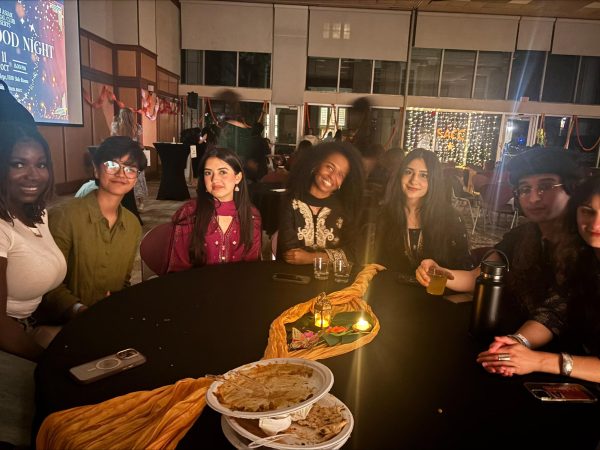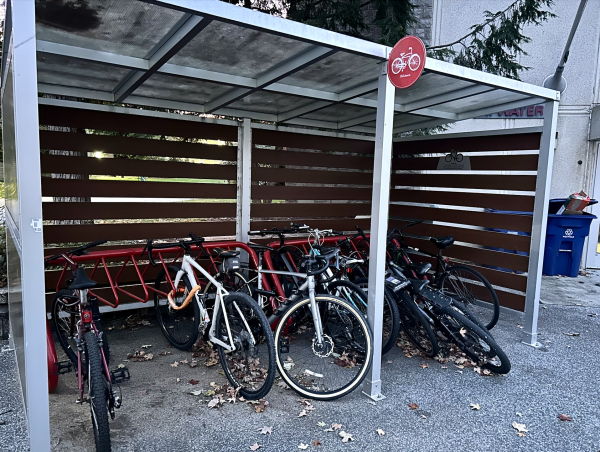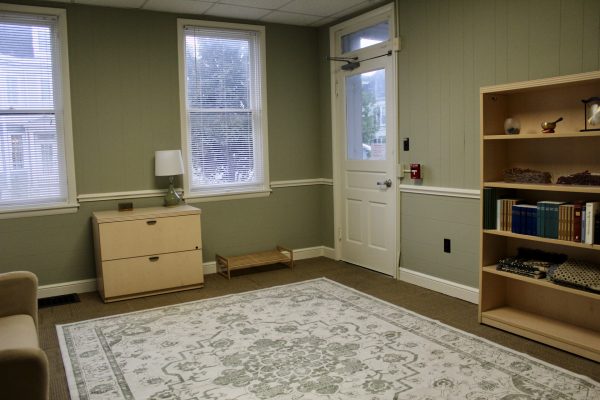Honoring Women’s History Month At Dickinson
Women’s History Month at Dickinson is a time to reflect on the gender gap in history and society. The Women’s and Gender Resource Center (WGRC) uses Gender Week as a more inclusive approach to tackle gender inequity.
Director of the Women’s and Gender Resource Center Katie Schweighofer said, “Gender Week is our chance to both engage women’s history traditions – Where are the gaps? What are the things we didn’t learn about? Who are the people in the past that have shaped our present? – But also to think more critically about how gender is part of the conversations we’re having. Gender is something that affects everybody.”
Schweighofer explains this year’s theme for Gender Week was focused on gender and labor. The week kicked off Thursday March 2 with a talk by Professor Paul Ko on “Globalization, the Gender Wage Gap, and Female Labor Participation,” followed by a dialogue with four servicewomen from the U.S. Army War College Monday, a financial literacy session hosted by the Latina Discussion Group Tuesday, a career workshop Wednesday and ended with an alum talk on their experience as an LGBTQ+ identifying person in the workplace Thursday.
Furthermore, Schweighofer said her student workers created and displayed informational posters highlighting important women in labor movements around campus. The WGRC acknowledges that the week before spring break is a hectic time, therefore their events are more practical, informational and engaging, often including free food.
“Not everyone feels comfortable accessing the great career resources we have here, so part of what we were trying to do is make those resources really accessible to people; help people connect with them no matter what their background is–whatever questions they have that haven’t yet been answered,” said Schweighofer.
Planning for Gender Week started in the fall with Rebecca Garcia ’24, who was a WGRC student worker. Schweighofer was working part time in the fall, so students got to shape the majority of the program. Outside WGRC, the YWCA and the public library also celebrate Women’s History Month. Take Back The Night, another WGRC event which will occur April 19, is an example of multiple campus organization coming together to with the common goal to end all forms of sexual violence.
As far as courses go, Katie Oliviero, Chair and Associate Professor of Women’s, Gender and Sexuality Studies said, “WGRC’s charge is to think about programming that helps all students across the college — think about how gender and sexuality shapes their lives across the disciplines. As an academic department, we often will recommend those events, sometimes tailor readings around those events. But, as an academic department, while events that we plan are open to students who aren’t majoring or minoring, the WGRC is meant to reach out and work with all students regardless of gender.”
Oliviero continued saying, “A lot of history, especially in countries like the U.S., was being told from a supposedly neutral racial and gender perspective, but it ended up really telling more of the stories of history as it related to men…So in part, Women’s History Month emerged to draw attention to the way that gender and women, broadly, have been central to history.”
Schweighofer agrees, and explains that in some ways, “The goal would be to not have to have these kinds of months. If we were fully attentive to our complex histories and the different roles of different people, then we wouldn’t need to have a Women’s History Month. Right now though, they serve an important function.”







